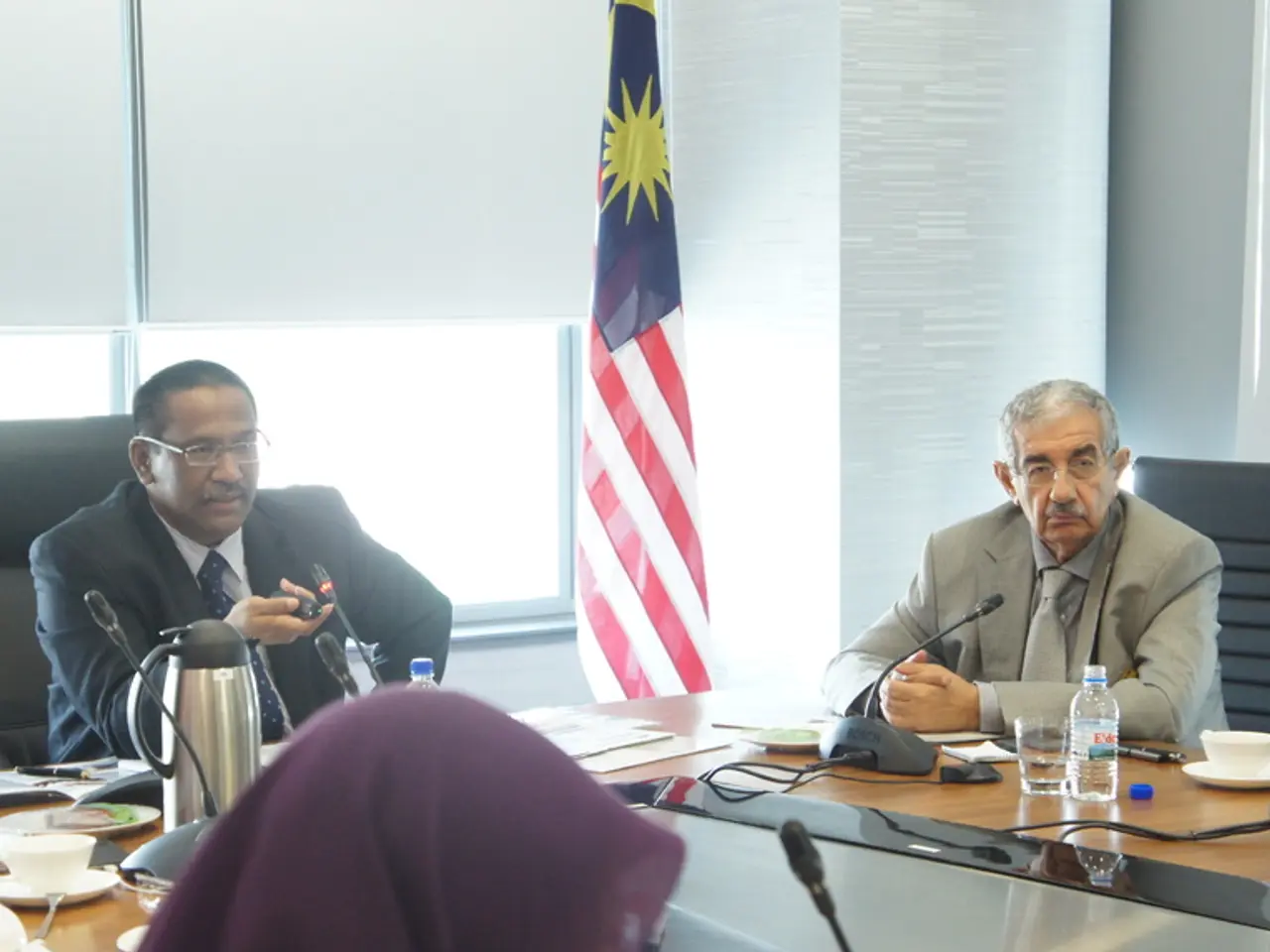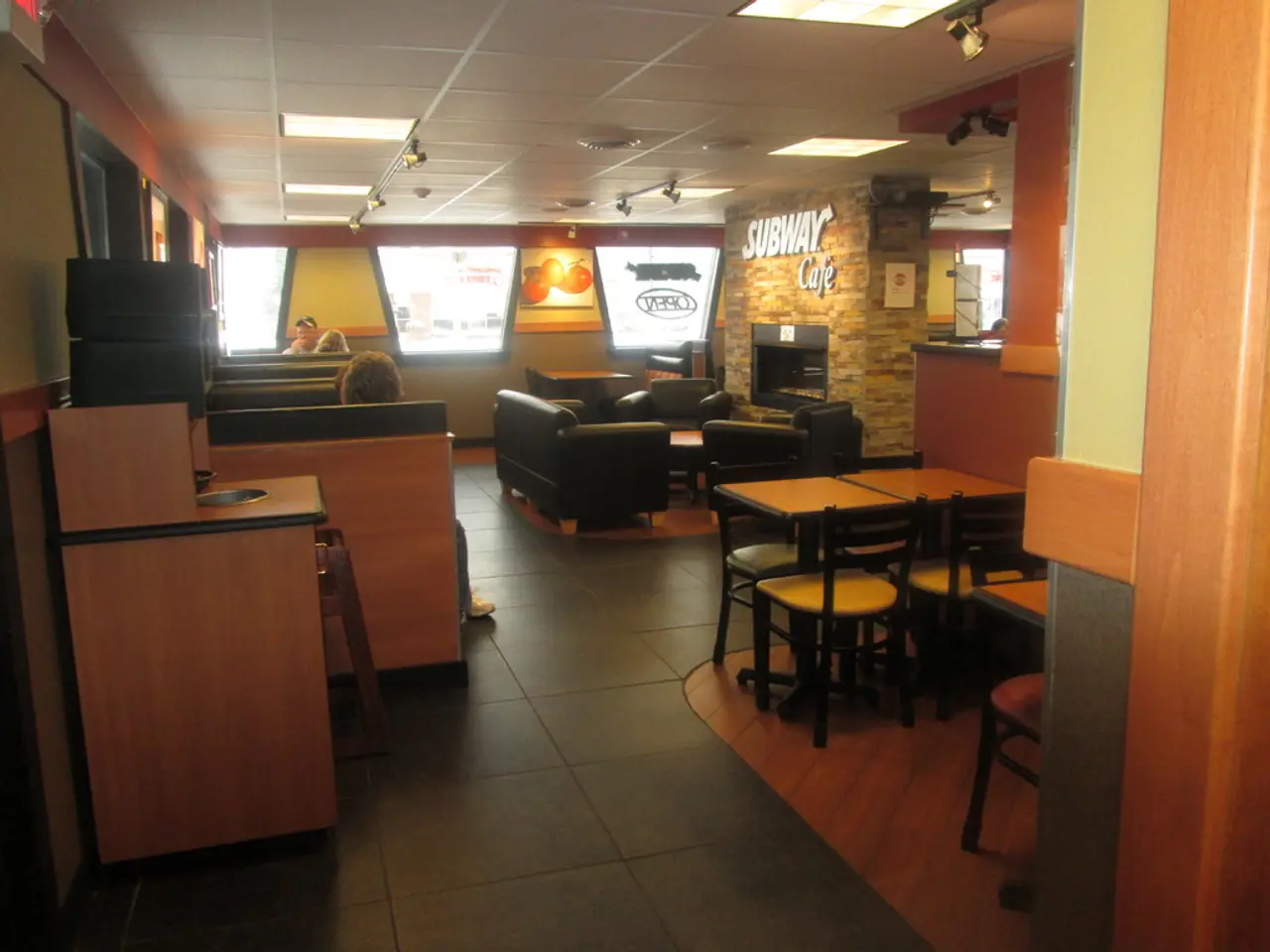Concerns among German businesses rise due to significant decrease in asylum applicants
In the heart of Europe, Germany is grappling with a significant decrease in asylum applications in 2025, marking a stark contrast to the influx of refugees seen in previous years. This decline, which saw just 9,900 applications in May 2025 compared to 250,945 in 2024, has left industries that historically relied on refugee workers facing labor shortages.
The incoming center-right government, led by Friedrich Merz, has implemented a freeze on refugee programs since April 2025, reversing prior pledges to admit 13,000 refugees. This decision has led to legal challenges from affected families.
At a summit hosted by Germany in July 2025, interior ministers from Germany and five neighboring countries agreed on tougher asylum regulations and streamlined deportations to reduce irregular migration, emphasizing coordinated European action on migration policy rather than increasing refugee intake.
Germany's refugee policy for certain groups, such as Palestinians, has deprioritized asylum applications amidst claims of unclear conflict conditions, further reducing acceptance rates. The overall policy direction is toward tightening asylum rules and improving deportation efficiency, rather than expanding refugee pathways to fill labor shortages in sectors dependent on refugees.
Asylum applications are primarily from first-time applicants. Many German industries, particularly those with less skilled jobs, are relying on refugees for work. In response, some business leaders have called for targeted labor migration and simplified immigration procedures, including for so-called 'basic' positions.
One such initiative is the 'Job Turbo' programme in Saxony-Anhalt, which has resulted in 7,775 refugees finding employment since its introduction in October 2023. Deutsche Bahn, Germany's national railway operator, is another example, considering immigration as part of the solution for its continued operations.
Despite the labor shortages, Germany has vowed to continue its migration crackdown at its borders. As of the end of July, 9,506 people have been turned away at the German border according to German police data. However, the government has not proposed any direct labor-market measures—such as new visa or work permit programs targeting refugees or alternative migrant workers—to address these shortages.
The situation has led to a paradoxical scenario where Germany, while tightening its asylum and immigration policies, is still reliant on refugees for its workforce. As the year progresses, it will be interesting to see how Germany navigates this complex issue and whether it will institute new measures to address the labor shortages caused by the decline in asylum seekers.
- The tightening of asylum rules and immigration policies in Germany, as depicted in the current political landscape, has sparked discussions about targeted labor migration and simplified immigration procedures for certain sectors, such as crime-and-justice, given the increasing reliance on refugees for work.
- Amidst the ongoing migration crackdown at its borders, general-news outlets have reported a paradoxical situation in Germany, where the government is simultaneously tightening its asylum and immigration policies while still relying on refugees for its workforce, raising questions about potential labor-market measures to address the emerging labor shortages.







